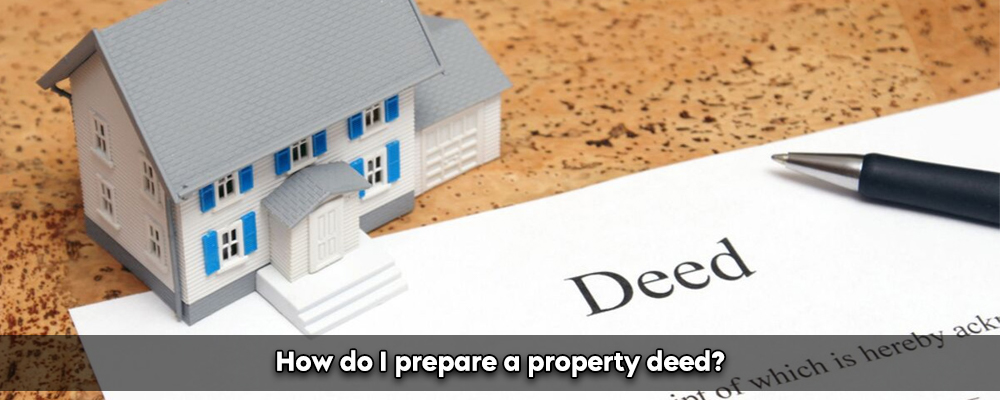An important legal document that represents the transfer of ownership from one person to another is a property deed. Making a property deed is an essential stage in the process, regardless of whether you are purchasing, selling, giving as gifts, or transferring a property. A properly drafted deed guarantees a seamless and legitimate transfer of ownership while safeguarding the rights and interests of all parties.
Types of Property Deeds
Property deeds come in a variety of forms, each with a distinct function. They are as follows-
Quitclaim Deed
This kind of deed transfers ownership of the property from the previous owner to the new proprietor without providing any assurances on the title.
Warranty Deed
In a warranty deed, the grantor promises to hold good, desirable title to the property and to stand up for the grantee in the event of any disputes.
Special Warranty Deed
This type of deed has characteristics comparable to a warranty deed in that it only provides protection from claims made while the grantor was the owner.
Grant Deed
This kind of deed is comparable to a warranty deed but provides a weaker assurance of the ownership of the property.
Trustee Deed
When transferring properties held in a trust, a trustee’s deed is utilized.
Steps Involved in Preparing a Property Deed
Deriving any Important or Relevant Information
- Collecting all the necessary information is essential before you begin drafting a property deed. Details on the property are included in this, including the legal explanation, addresses, and any appropriate tax identification numbers. All parties to the transaction, including the grantor (the current owner) and the grantee (the future owner), must also provide their names, addresses, and contact information.
Preparing the Deed
- A property deed needs to be prepared in a straightforward, transparent manner in order to accurately reflect the objectives of the parties involved. Even if you are capable of drafting a deed on your own, you should consult a lawyer to ensure that it is legally sound and appropriately stated. A property law specialist can help you avoid any problems and ensure that all legal requirements are completed.
- If you choose to draft the deed yourself, use straightforward language and include all relevant clauses, such as –
- Date of execution of property deed
- The name and address of the grantor(s) as well as the grantee(s)
- A detailed account of the property, covering its limits and any important identifiers
- Using a quitclaim, warranty, or other sort of deed
- Consideration- The money or value is given in exchange for the asset
- Any additional transfer terms or circumstances
Execution of the Property Deed
The parties concerned must sign the deed after it has been properly drafted. The deed must be signed by all parties, which includes the grantor(s) and grantee(s), in front of a notary public. The notary’s job is to guarantee that the signatures are genuine and to confirm the signatories’ identity.
There can be further conditions for the deed’s execution, depending on your jurisdiction. Other states may have special formatting requirements, while some states demand witnesses along with a notary. To guarantee the deed’s validity, it’s essential to learn about and abide by the legal standards of your jurisdiction.
Recording the Property Deed
The property deed must be recorded in order to create a transparent chain of ownership and safeguard the rights of the new owner. The deed must be sent to the relevant government office, typically the county recorder’s office, wherein the property is located, in order for it to be recorded.
The public is informed of the ownership change by the recording of the deed, which also aids in determining the order of rights of ownership in the event of a dispute. To guarantee that the legal ownership of the property is correctly documented, it is crucial that one records the deed right away as it is executed.
You will need the help of a Lawyer for property deed who make sure that deeds are accurately drafted, compliant with the law, and properly recorded to secure legitimate property transactions and ownership rights. The Damage lawyers represent their clients’ rights and just recompense in court cases by evaluating, negotiating, and litigating compensation claims for bodily harm, property damage, or monetary losses. Similarly, in order to ensure compliance and safeguard the rights of their clients in land-related situations, land lawyers manage the legal facets of transactions involving real estate, disputes over property, etc.
One can talk to a lawyer from Lead India for any kind of legal advice. In India, free legal advice online is obtainable at Lead India. Along with receiving free legal advice online, one can also ask questions to the experts online free through Lead India.





 Talk to a Lawyer
Talk to a Lawyer